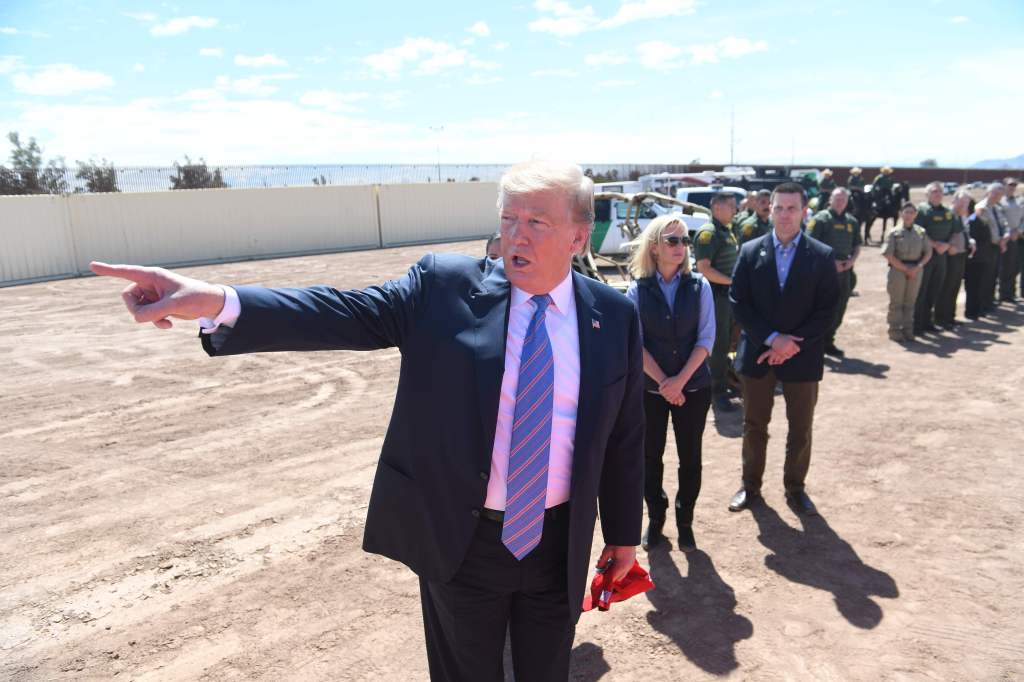Update: Late Friday President Trump announced that a deal with Mexico had been reached and that he was indefinitely suspending his threat to impose tariffs. Click here for details.
Californians with a taste for avocado toast, fresh strawberries, tech gadgets and new cars should consider stocking up this weekend.
On Monday, the costs of those goods could skyrocket if the Trump administration decides to make good on threats to impose escalating tariffs on all imports from Mexico. Part of a strategy to pressure Mexico into taking steps to curb illegal immigration, the 5% tariff — which President Trump has said could rise to 25% by October — could affect everything from the price of produce and automobiles to the supply chain for tech products whose parts are manufactured in both countries.
The economic impact could be particularly bad in California, which imports $44 billion from Mexico annually and counts the country among its largest trading partners.
As of Friday, the fate of Trump’s tariff plan was unclear. After threatening for weeks to impose the tariff — over objections from lawmakers in both parties — Trump appeared to soften his stance late Friday, tweeting that there was a “good chance” the U.S. and Mexico would reach a deal before Monday.
“If we are able to make the deal with Mexico, & there is a good chance that we will, they will begin purchasing Farm & Agricultural products at very high levels, starting immediately,” the president wrote. “If we are unable to make the deal, Mexico will begin paying Tariffs at the 5% level on Monday!”
If we are able to make the deal with Mexico, & there is a good chance that we will, they will begin purchasing Farm & Agricultural products at very high levels, starting immediately. If we are unable to make the deal, Mexico will begin paying Tariffs at the 5% level on Monday!
— Donald J. Trump (@realDonaldTrump) June 7, 2019
Should the tariffs go into effect, however, consumers and workers in California will feel the consequences, adding an estimated $2.2 billion to the prices Californians pay for goods imported into the state from Mexico. Some of the 565,000 California jobs state officials say depend on trade with Mexico also could be at risk.
“This will be particularly bad for California,” Sen. Dianne Feinstein, D-Calif., said in a statement. “Mexico is the top market for California exports, accounting for 17% of our state’s exports. The president’s plan is unnecessary, disruptive and chaotic. It invites a response from Mexico that will inevitably lead to a trade war.”
California Gov. Gavin Newsom also has criticized Trump’s plans, calling the tariffs a “massive, across-the-board tax increase.”
“Our imports include motor vehicles, audio and video equipment, agricultural products and medical equipment and supplies, much of which is made by U.S. companies operating in Mexico with integrated supply chains that cross the border back and forth,” said Lenny Mendonca, chief economic and business advisor to Newsom and director of the governor’s Office of Business and Economic Development. “The commercial, cultural, education, and tourism ties between California and Mexico are strong and close.”
Though the impact would vary by sector, one of the most obvious and immediate areas that would be hit would be the price of fruits and vegetables, said Sean Randolph, senior director at the Bay Area Council Economic Institute, a San Francisco-based economic think tank. “Most of our raspberries, strawberries, avocados and tomatoes come from Mexico. They may be produced by U.S. companies, and they will be taking the tariff hit and passing that along to consumers.”
The effects of a tariff hike also are expected to filter through the state’s manufacturing sector, according to Jerry Nickelsburg, professor of economics and director and senior economist at UCLA’S Anderson School of Management
“California does produce a lot of machinery equipment and components for autos, and that’s highly integrated with Mexico,” Nickelsburg said. “With an increase in tariffs, we could see increases in uncertainty over investments in manufacturing, and that could have an impact on employment.”
And should Mexico decide to retaliate by imposing its own taxes on U.S. goods — as many economic analysts and trade experts have speculated it would — the economic costs to California would become much greater. The state counts Mexico as its third largest export market and sent roughly $31 billion in goods across the border last year.
“If anything (with new tariffs) does happen, how serious it becomes depends on how long the tariffs last, any new retaliations that come from Mexico, and if jobs on both side of the border are affected,” said Stephen Levy, director of the Center for Continuing Study of the California Economy in Palo Alto. “There are just no economic benefits that will come from this.”










